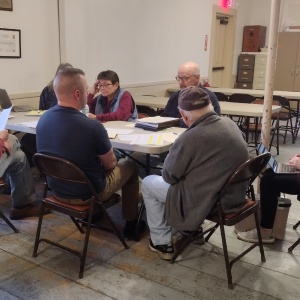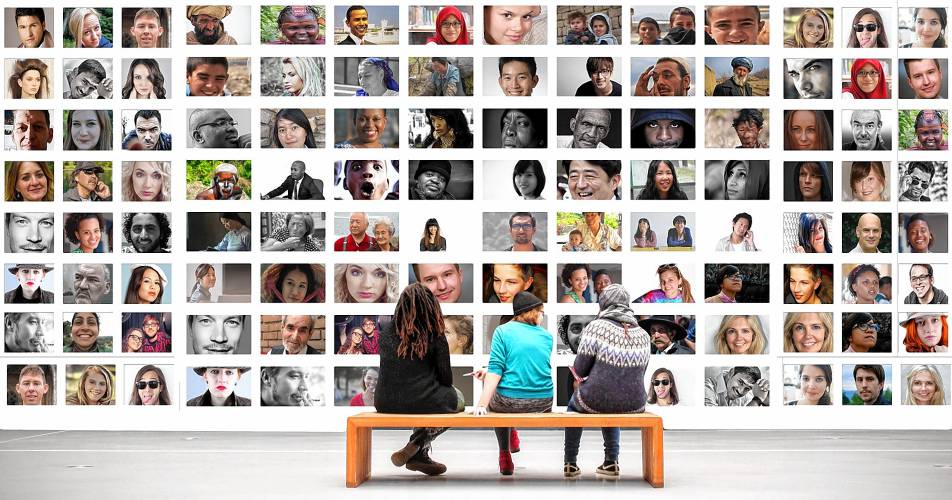Columnist Daniel Cantor Yalowitz: Cultural humility means relinquishing ‘superiority’
| Published: 04-15-2024 7:31 AM |
“The greatest friend of truth is Time, her greatest enemy is Prejudice, and her constant companion is Humility.” — Charles Caleb Colton
Headline news everywhere screams of key contemporary themes involving “ego,” “self,” “it’s all about me,”… not to mention the daily sayings and doings of our former president. What an example for the 73 million people who voted for Trump in 2020, and especially for those of us who are deeply invested in community, service, cooperation, and collaboration! Both in the immediate, and far into the future, what we need — more and most — is to practice humility, both personal and cultural.
Being humble means having a modest view of one’s own importance, abilities, achievements, or possessions. In a sense, the very notion of humility, on all levels, runs at odds with our highly individualistic society. We are rarely taught the practice and value of humility in our schooling, our families, and our culturally focused institutions.
In its place, during this highly charged MAGA era, most of us hear about and experience a “Me-First” or “My Group First” mentality. I’ve always appreciated the American author and actress Vanna Bonta’s comment that “humility is the ability to give up your pride and still retain your dignity.” Rather than seeing ourselves as being (or needing to be) first, let’s look instead to the others around us, and beyond ourselves, to appreciate their goodness, good works, “can-do” attitude, and progress in the face of intense duress.
Today’s column will focus on the lesser known of what I call the “Two Humilities”: cultural humility. In two weeks, we’ll have a look at the personal aspect of humility. Having cultural humility is the ability to maintain an interpersonal stance that is open to another individual, different from oneself, in relation to aspects of cultural identity that are most important to that other person. Most significantly, it involves self-awareness of one’s own personal and cultural biases as well as awareness and sensitivity to significant cultural issues of others.
The practice of cultural humility challenges and enables individuals from the dominant cultures to decenter their personal experiences and work to understand and value the critical cultural context of marginalized communities and sub-groups. Having access to and utilizing cultural humility is part of what enables an individual to build honest and trustworthy relationships. This rings true for non-dominant groups and sub-groups as well. In short, we all have the gift of opportunity to exercise a greater contextual understanding of others in order to build and embrace relationships with others different from ourselves.
Those of us from within the dominant culture and its alliances are often unable to recognize our own cultural norms and biases, much as a fish has no idea that it swims in water. To be sure, dominance reinforces biases, but all humans have a propensity for favoring their own groups while potentially denigrating others. Therefore, it is imperative that all human beings learn how to recognize our biases in order to become more inclusive of others. Cultural humility is essential to pave the way for the all-important practice of equity. Equity — the quality of being fair and impartial — cannot be reached or maintained without cultural humility.
Being able to differentiate people from one another and from oneself does not necessarily mean separation and isolation from them. Nor must such understanding and awareness of our human diversity mean that competition and winning over them is a pathway toward demonstrating one’s cultural humility. The mere ability to perceive difference (which we all have) doesn’t by itself help us to get closer to others who are different from us. What we need is a perception and understanding of our similarity to others. This enables us to build, integrate, and enlarge our networks and relationships with others.
Article continues after...
Yesterday's Most Read Articles
 Carol Doucette of Royalston receives $15,000 from Publishers Clearing House
Carol Doucette of Royalston receives $15,000 from Publishers Clearing House
 State documents show Northfield EMS chief’s paramedic license suspended over failure to transport infant
State documents show Northfield EMS chief’s paramedic license suspended over failure to transport infant
 Plan calls for upgrades to Silver Lake in Athol
Plan calls for upgrades to Silver Lake in Athol
 Royalston’s FinCom debates proposed salary increases
Royalston’s FinCom debates proposed salary increases
 What are the protocols for emergency transport of infants?
What are the protocols for emergency transport of infants?
 Magic comes to Red Apple in Phillipston
Magic comes to Red Apple in Phillipston
The old and well-weathered mid-20th century metaphor of the “American melting pot” lacks all sense of cultural humility. With that pot now having basically melted itself out of existence, the more appropriate metaphor of the “salad bowl” allows for unique cultural considerations to exist with integrity rather than rancor and power over. In other words, differences among individuals and their cultures are not only acceptable, but worthy of appreciation and celebration. Beginning with an awareness of the similarities among all human beings makes it easier to appreciate the differences between them.
Whether we are focusing on our own neighborhood, community, precinct, town, state, and beyond, it matters for us to have access to and ponder the importance of the uniqueness of differing cultures. Beyond this awareness is our seeking to understand and live in harmony with these cultural distinctions. If we could do so on a daily basis, we can have greater hope to respond to and even resolve some of the many conflicts that exist in our world today. This is a direction that we need to continue to move in to establish greater peace and safety in our world for future generations.
Daniel Cantor Yalowitz writes a regular column in the Recorder. A developmental and intercultural psychologist, he has facilitated change in many organizations and communities around the world. He is former chairman of the Greenfield Human Rights Commission and his two most recent books are “Journeying with Your Archetypes” and “Reflections on the Nature of Friendship.” Reach out to him at danielcyalowitz@gmail.com.



